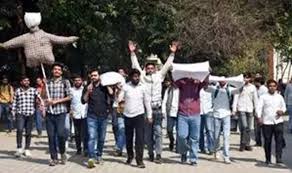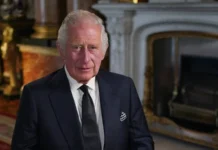Rahul Gandhi and allies oppose Hindi in education, sparking debate over language, identity, and politics.
NEW DELHI: The Indian National Congress, led by Rahul Gandhi, along with its allies like M.K. Stalin from Tamil Nadu, Uddhav Thackeray from Maharashtra, and Sharad Pawar, are aggressively campaigning against the importance of Hindi and Indian languages in education for electoral gains. Under the new education policy, several states have already implemented education in Hindi and regional mother tongues up to the age of eight. Interestingly, Sanskrit has had an inseparable connection with Tamil, Marathi, Hindi, and other Indian languages. Freedom fighters and constitution-makers were strong supporters of these languages.
Hindi is spoken in more than 150 countries worldwide. Moreover, Hindi is taught in over 200 universities across the globe. Approximately one billion people understand and speak Hindi, yet some political leaders, driven by regional interests, are making every possible effort to confuse and incite the public.
In this context, Home Minister Amit Shah recently said at the Golden Jubilee celebration of the Department of Official Language that Hindi is not opposed to any Indian language but is a friend to all. He emphasised that we should take pride in our mother tongue and encourage thinking, speaking, and expressing in it. Shah appealed to all state governments to introduce higher education—such as medical and engineering studies—in local languages. He assured that the central government would provide all necessary support to states in this regard. The Home Minister also stressed the increased use of Indian languages in administrative functions. Languages, he said, can elevate the country’s cultural self-esteem, and we must liberate ourselves from the mindset of mental slavery. Until people take pride in their own language and express themselves in it, he said, they cannot consider themselves truly free. Language is not just a medium of communication; it is the soul of a nation. Therefore, preserving and enriching Indian languages is essential. Shah called for dedicated efforts to ensure the development of all Indian languages in the years ahead.
Mother-tongue-based education has already been included in the basic school curriculum in India. This has opened new avenues for students, enabling more effective learning, and has helped bridge the gap between traditional and modern education systems.
Hindi is spoken in more than 20 countries outside India, including Bhutan, Nepal, Myanmar, Bangladesh, Pakistan, the UAE, Singapore, Malaysia, Thailand, Hong Kong, Fiji, Mauritius, Trinidad, Guyana, Suriname, the UK, Canada, and the USA. A sizable Hindi-speaking population also resides in South Africa, Yemen, Uganda, and New Zealand. Hindi education and research have gained importance in prestigious universities in the USA, Germany, and the UK. Foreign companies are hiring Indian youth proficient in Hindi and other Indian languages to succeed in Indian markets.
The central government is also offering special grants to prepare textbooks in Hindi and other Indian languages for medical, engineering, and other technical education. In Madhya Pradesh, a medical course in Hindi was launched in 2022. Three major textbooks—Anatomy, Physiology, and Biochemistry—were made available in Hindi. It was the first time a state initiated medical education in Hindi. Uttar Pradesh, Chhattisgarh, and Bihar are also planning to introduce medical education in Hindi. The National Medical Commission (NMC) is currently reviewing the Hindi translations. Tamil Nadu and Karnataka have also started developing medical terminology and course materials in Tamil and Kannada, respectively.
Similarly, for engineering education, institutions such as IIT Madras, IIT Varanasi, and IIT Bombay have launched B.Tech. courses in Hindi, Tamil, and Marathi on a trial basis. According to the All India Council for Technical Education (AICTE), engineering courses have been translated into 12 Indian languages, including Hindi, Marathi, Tamil, Bengali, Gujarati, Telugu, and Urdu. In Madhya Pradesh, government engineering colleges have started B.Tech. courses in Hindi medium. Some universities in Maharashtra have developed engineering curricula in Marathi. First-year engineering textbooks are now available in Hindi, Marathi, Tamil, Bengali, and Urdu. Education in the mother tongue has proven particularly beneficial for students from rural or non-English-speaking backgrounds.
However, even in Hindi-speaking states, there has been insufficient focus on making the study of another Indian language mandatory in schools. While many schools offer French and German, Indian languages such as Marathi and Gujarati could be taught more easily. Private schools that receive government land or other aid should be required to offer at least one Indian language other than Hindi and English. Regardless of institutional autonomy, strict policies may be necessary for national development and unity.
Ironically, the three-language policy was introduced by a Congress-led government years ago but never properly implemented. Now, Congress leaders oppose its enforcement, likely hoping to win support from regional parties based on caste, language, and religion-based politics. But can they win more votes or seats than the families of Lalu Yadav and Akhilesh Yadav in Bihar and Uttar Pradesh? Even if Sharad Pawar and the Thackeray family form alliances in Maharashtra, they are unlikely to bring Congress many votes.
It’s worth noting that former Prime Minister P.V. Narasimha Rao, despite being a South Indian Telugu speaker, was proficient in speaking and writing in multiple languages, including Hindi and Marathi. H.D. Deve Gowda, a Kannada speaker, learned Hindi after becoming Prime Minister and was able to deliver speeches in it. Dr Manmohan Singh would deliver speeches written in Urdu or Roman script. However, as Home Minister, Congress leader P. Chidambaram never spoke in Hindi, did not promote the Department of Official Language, nor took steps to promote Tamil either. He remained a close loyalist of the Gandhi family.
That is why Rahul Gandhi appears uncomfortable with the government’s current education policy. He prefers to appease institutions like Harvard and Oxford while criticising the Indian system.







